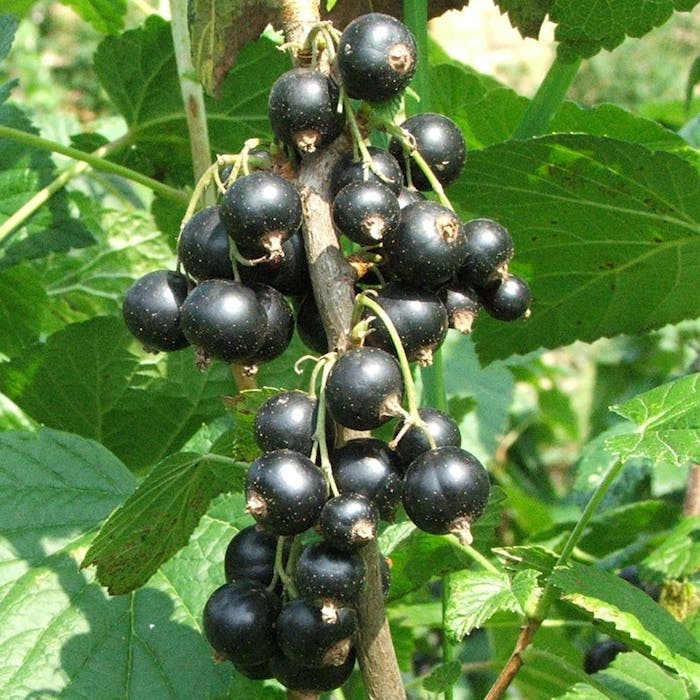
The blackcurrant - bursting with goodness and easy to grow
Blackcurrants have been growing in the British countryside since at least the 17th century, and this native northern European fruit bush is both a commercial crop, and a very easy to grow plant for gardens and allotments.
The berries are regarded as vitamin-rich and healthy, and are the basis of the British-originated fruit drink Ribena, introduced in 1938.
Much has been said in recent years about the health-giving qualities of blueberries, but the native blackcurrant, which has been bred into many varieties by British growers, is much better suited to our soil and conditions. It also produces a fruit that contains far higher levels of health-boosting compounds than the blueberry, according to researchers at the James Hutton Institute near Dundee.
Blackcurrants produce bunches of dark purple to black fruits in mid-summer. They have a tart flavour, are an invaluable source of vitamin C and are popular for use in pies and jams, and to make cordials and cassis, though they can also be eaten raw.
The bushes can grow to about five feet high and wide, prefer moist fertile soil and, ideally, a reasonable amount of sunshine. An annual prune is the norm, but as the berries fruit on old wood, lazy gardeners will still get fruit even if they ignore the plant for several years.
For very small gardens, compact bushes also exist. The main breeders at the moment are in Scotland, and most of their varieties are named after Scottish mountains.
The popular cordial Ribena absorbs most of the annual commercial crop of blackcurrants, so they are less likely than they might be to be seen on supermarket shelves.
Developed by the Bristol-based food and drink company HW Carter as a blackcurrant squash, Ribena's popularity as a vitamin C supplement and children's drink stems from World War II, when it was given to children to prevent scurvy, after Germany's U-boat blockade prevented ships with citrus fruits like oranges and lemons from reaching the UK. Ribena was developed at the Long Ashton Research Station near Bristol, which specialised in both blackcurrants and cider fruits, and is the source of many older blackcurrant varieties.
Blackcurrants were once popular in the United States, but were then banned for over a century because, as a vector of white pine blister rust, they were considered a threat to the U.S. logging industry. The ban has recently been lifted in some states, but many Americans have never tasted a blackcurrant.
Further reading
Links to external websites are not maintained by Bite Sized Britain. They are provided to give users access to additional information. Bite Sized Britain is not responsible for the content of these external websites.
